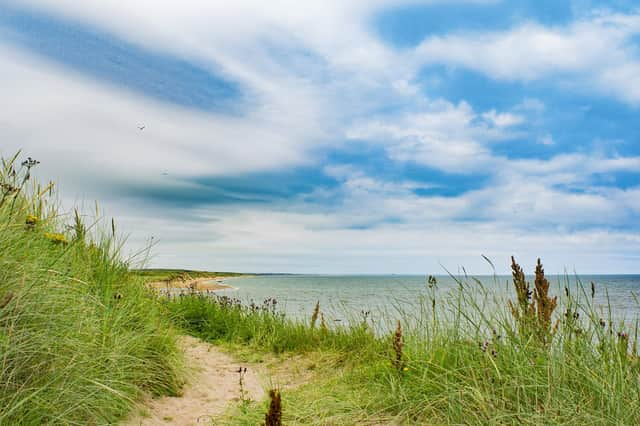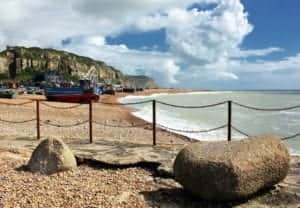How to find perfect beach staycations across the UK


Whether your ideal beach is soft sand and lapping waves, stunning cliffs as a backdrop, giant surfing waves, or endless rock pools to explore, the UK has options to suit everyone.
With over 7,000 miles of coastline, the choice for staycations or day trips is endless, whether you prefer scenic cliff top hikes or fish and chips on the prom.
Advertisement
Hide AdAdvertisement
Hide AdPoole, a south coast destination where you might just get to spot a dolphin close to shore, is the top-rated coastal town according to statistics, with 14 restaurants for every 1,000 visitors and around 1,800 hours of Dorset sunlight to offer annually.
But moving way up north to Scotland, Aberdeen also ranked very highly with its stretch of golden sands from the mouth of the River Dee up to the quaint town of Newburgh.
Other high scoring destinations for a coastal break, according to a wide range of factors researched by Ageas, include Hastings (pictured below), Plymouth, Brighton, Torquay, Weymouth, Newquay, Penzance and Eastbourne.


This study looked into the most popular towns and cities across the UK, according to VisitBritain, and combined the average number of visitors with a series of other factors, including pricing, accommodation and parking, from 59 small towns and cities.
Advertisement
Hide AdAdvertisement
Hide AdSuch a tool can be helpful when deciding on a variety of factors related to particular destinations, from the facilities on campsites, to whether there is ample parking, availability of dining options and much more.
However, this study was completed just before the coronavirus outbreak so there may possibly be some changes at various resorts.
It is always recommended to follow the most up-to-date national and local government advice when booking any staycation.
Another measure that might be of use to anyone seeking out a beach staycation is the Blue Flag Award that is given to beaches across the UK.
Advertisement
Hide AdAdvertisement
Hide AdThis standard is internationally recognised and awarded by the Foundation for Environmental Education.
Its certification guarantees the quality of bathing water as part of its criteria, and it is focused on resort beaches with plenty of facilities.
Blue Flag beaches are not necessarily better than many of Britain’s smaller, pretty coves that are dotted about the coastline, but they do indicate that the venues have attained a certain and trusted standard.
The Blue Flag criteria are divided into four categories as follows:
Advertisement
Hide AdAdvertisement
Hide AdEnvironmental education and information - to find out just what the beach provides within its general environment.Water quality - the most important factor here is that no industrial, waste-water or sewage-related discharges should affect the beach.
Environmental management - includes keeping the beach clean, and a must is that toilets should be available to the public.
Safety and services - beaches should be patrolled by lifeguards. Availability of drinking water and accessibility features, which are another consideration, are also included.
Each year beaches across the UK can lose or gain their Blue Flag status.
Advertisement
Hide AdAdvertisement
Hide AdThis year, there are 195 Blue Flag Awards to beaches in the British Isles (UK and Ireland) all of which have met the stringent criteria to qualify.For more information and a complete list of criteria visit the Blue Flag Award website.